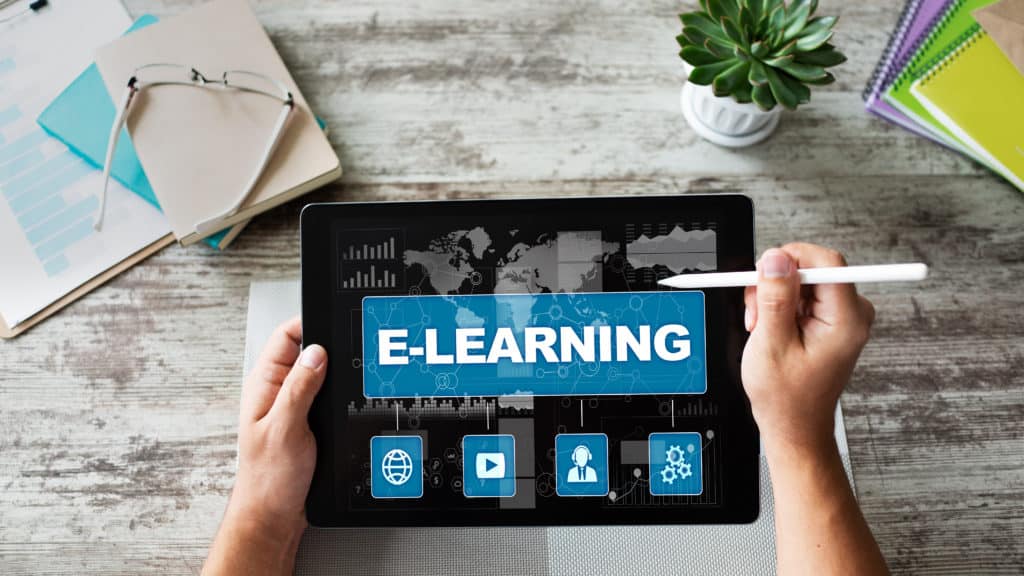
Are you new to the e-Learning industry? And do you wish to implement a new learn and development program in your organisation? If so, you may have to deal with with a lot of unfamiliar industry jargon and terms. But that’s okay, because this article can help you navigate some of the top eLearning terms that might have you scratching your head as you begin your journey to becoming an eLearning expert.
1 – LMS: Learning Management System
A software application for the administration, documentation, tracking, reporting, automation, and delivery of educational courses, training programs, or learning and development programs.
2 – DMS: Document Management System
A system used to create, track, manage, store, and distribute documents throughout an organisation. Therefore, it’s essential for managing compliance because it works hand in hand with an LMS.
3 – SCORM: Shareable Content Object Reference Model
A collection of standards and specifications for web-based electronic educational technology. Above all, it defines communications between an end-user device and a host system because it is commonly supported by an LMS.
4 – Micro Learning
A method to deliver content to users in small, specific bursts because it allows people to control what and when they learn.
5 – VET: Vocational Education and Training
Vocational Education and Training is education and training so it focuses on providing skills for work.
6 – RTO: Registered Training Organisation
A training provider registered by the Australian Skills Quality Authority (or a state regulator) to deliver VET services. RTOs provide quality training and qualifications that are nationally recognised.
7 – USI: Unique Student Identifier
A reference number for a student who creates a secure online record of their nationally recognised training
8 – CPD: Continued Professional Development
A term used to describe the learning activities professionals engage in to develop and enhance their abilities.
9 – AVETMISS: Australian Vocational Education and Training Management Information Statistical Standard.
It is a national data standard that ensures consistent and accurate capture. In addition, reporting of VET information about students.
10 – API: Application Programming Interface
API is a set of tools, protocols, and subroutine definitions for building applications. Therefore, in the case of eLearning, it’s often used in the context of the LMS API and its ability to link to other software.
11 – Blended Learning
An educational syllabus that combines multiple media types with a combination of offline and online learning. In other words, it’s often a blend of face-to-face and eLearning.
12 – Learning Pathway
An individual pathway to learn is taken by someone through a range of activities that allow them to build knowledge in a progressive manner. Therefore, a learning pathway is tailored specifically to a learner’s own circumstance.
13 – Competency Mapping
The process of identifying the specific skills, knowledge, abilities, and behaviours required to operate effectively in a specific trade, profession, or job position.
14 – SaaS: Software as a Service.
Software-as-a-service is a license and delivery scheme for software, by which programs are hosted on the cloud. In addition, they are paid for by subscription.
15 – BYOD: Bring your own device
The practice many businesses are adopting to allow their employees to use their personal devices as their main ones. In other words, it may refer to devices such as smartphones, tablets and laptops.
16 – Instructor Lead Training
The practice of education led by an instructor or facilitator, knowledgeable in the subject area with real-time feedback and collaboration. In addition, this can be face-to-face, online, or blended.
17 – SME: Subject Matter Expert
An expert in a specific field to whom you will turn to for content on a given course.
18 – CBT/WBT: Computer Based Training/Web Based Training
Computer-based training is training performed with the aid of a computer system. Therefore, the Web variant requires the use of a connected system, whether a computer or a mobile device.
19 – HTML5: Hypertext Markup Language Version 5
The standard markup language in the eLearning industry. For example, HTML5 can create mobile-friendly eLearning content that you can view on any device or browser.
20 – ROI: Return on Investment
Determine the cost of the eLearning versus the benefits that it provides. For example, one of the most significant benefits of corporate eLearning is that it improves online training ROI. In other words, it maximises the benefits and reduces online training costs, such as on-site instructor fees and printing.
In conclusion, to learn more about how dita Solutions can assist you to implement successful eLearning strategies in your business, start your free trial of dita Learning today.

